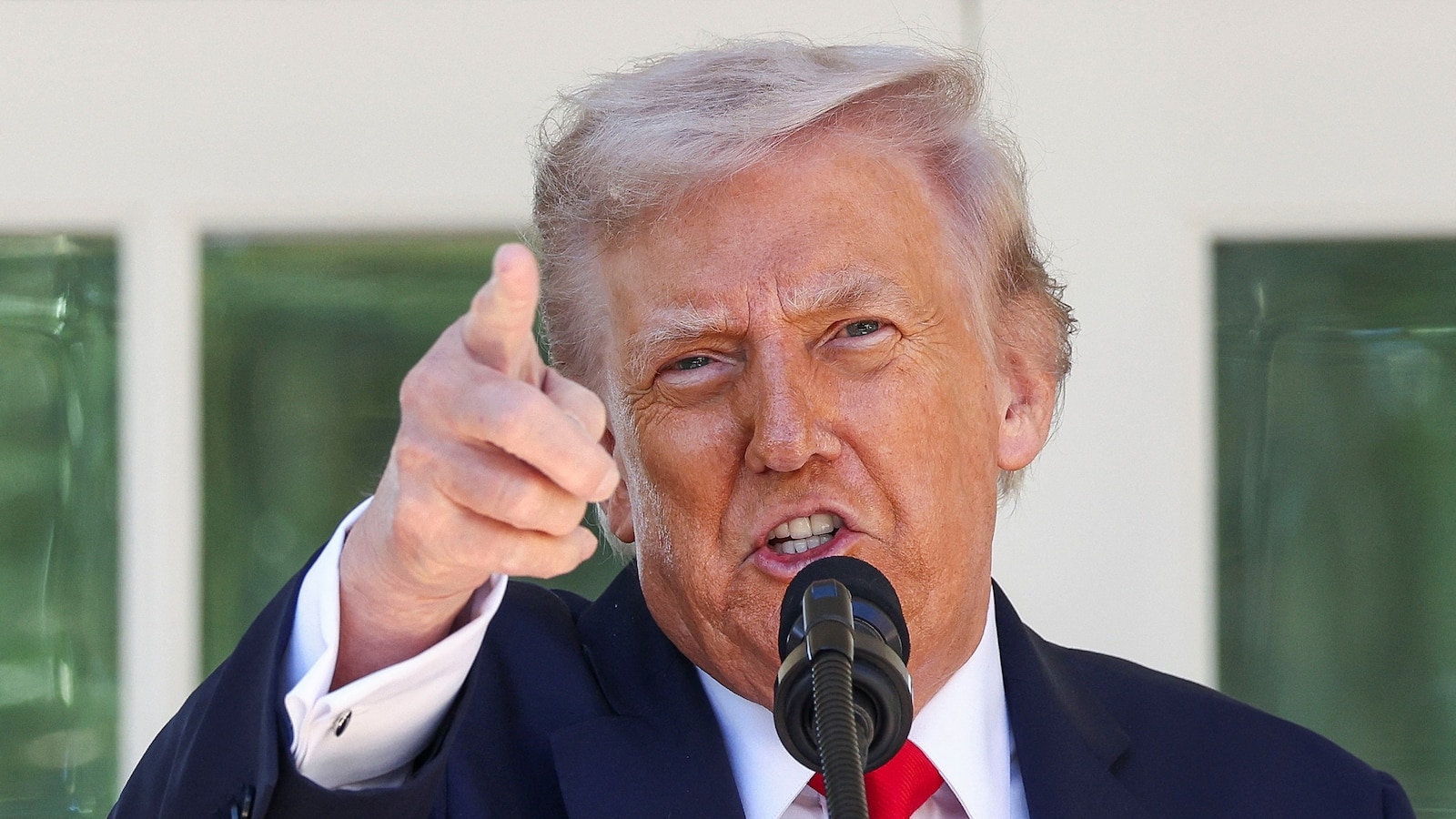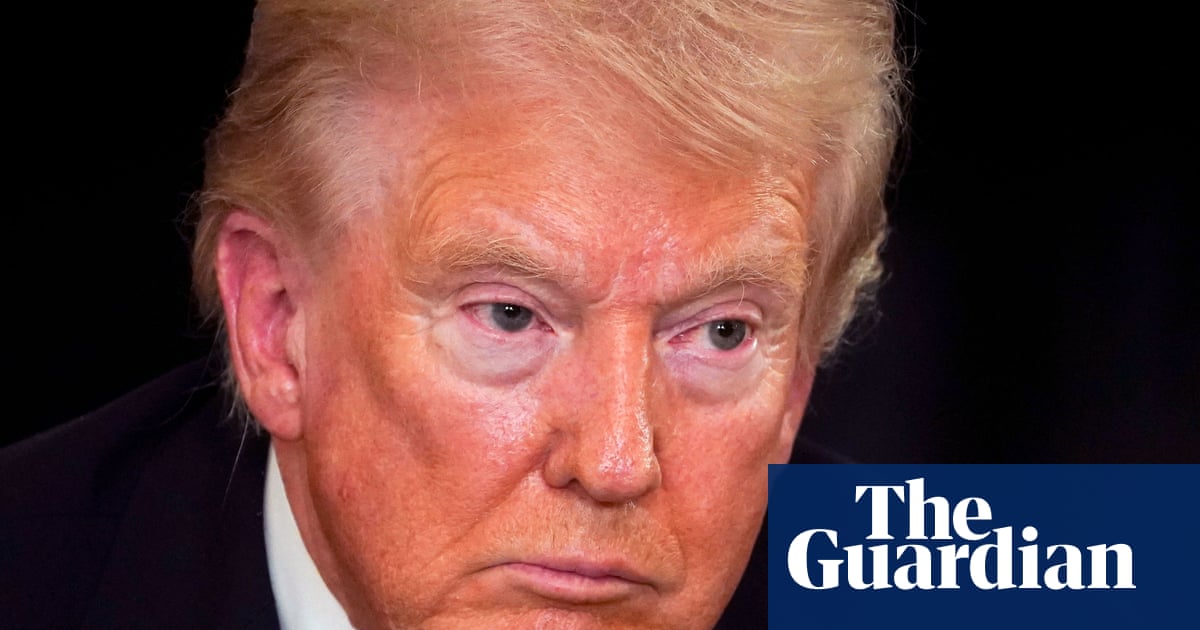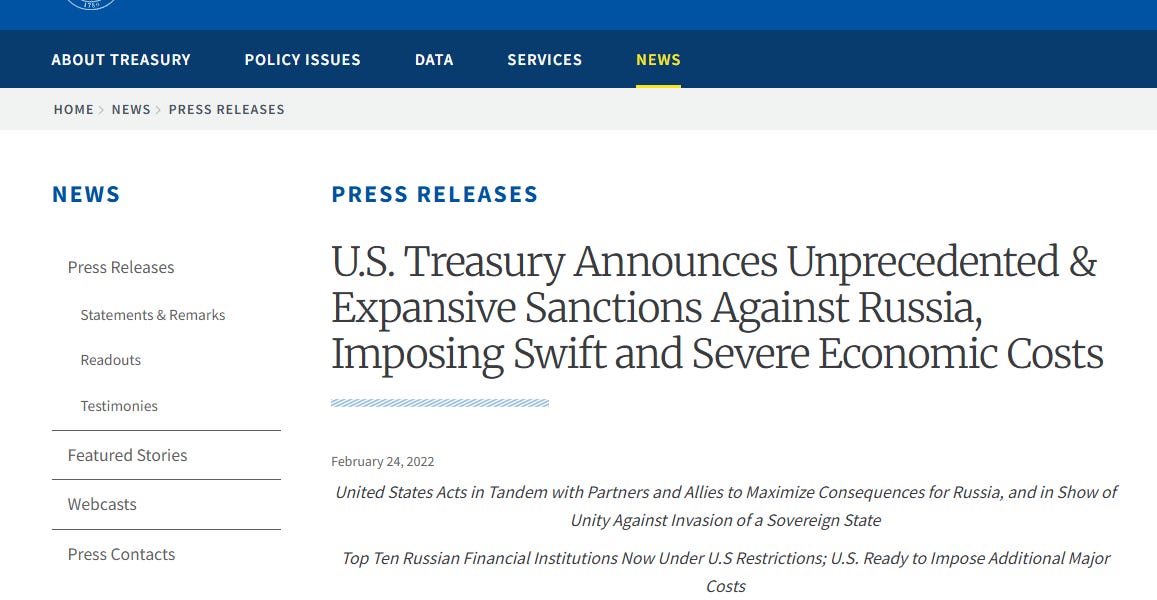Financial Times har snakket med kilder som ikke våger stå frem, av frykt for represalier.
Vis vedlegget 1154759
Any effort to capture the scope of the opening phase of Trump’s second term in office is prone to lose its bearings. The overload is intentional. No US president has spoken more than Trump, from his rambling press conferences increasingly directed towards de facto stenographers from Maga outlets, to his by-now serial addresses at military bases with troops as props. Steve Bannon, Trump’s former chief strategist, calls it “flooding the zone with shit”. Some of what Trump talks about is serious, such as his threats of revenge. Much of what he says is effluent; his recurring gripe about modern plumbing, for example, or the avian death toll from wind turbines. Yet every Trump pronouncement, whether true or false, in earnest or in jest, is a reminder of his supremacy. From today’s vantage point, Trump’s first term looks like a model of constitutional restraint. This time around, he dominates Congress, cabinet principals fall over themselves to praise him at his North Korea-style meetings and the Supreme Court has barely provided a check on his actions. For the time being at least, America’s separation of powers is theoretical. “Everyone is on my side now,” Trump reportedly told advisers this summer. “They were fighting [me] last time.” What has changed is simple: people are scared of crossing Trump this time. In researching this piece, I interviewed dozens of figures, including lawmakers, private sector executives, retired senior military figures and intelligence chiefs, current and former Trump officials, Washington lawyers and foreign government officials. Such is the fear of jail, bankruptcy or professional reprisal, that most of these people insisted on anonymity. This was in spite of the fact that many of the same people also wanted to emphasise that Trump would only be restrained by powerful voices opposing him publicly. At times, it has felt like trying to report on politics in Turkey or Hungary. “One of the reasons that Trump has me in his sights is because I criticise him in public,” said Andrew Weissmann, a New York University law professor who worked on Robert Mueller’s investigative probe into Russia’s alleged interference in the 2016 election and co-ordination with the Trump campaign. “I fully understand why many people are keeping their heads down.” Trump often cites Weissmann as one of the “bad guys” who deserve to be in prison. Revenge is one of Trump’s three recurring impulses. The others are making money and dominating the airwaves. Dissenters hinder each of these aims. Presidents of universities, chief executives of Fortune 500 companies, partners at law firms and senior military privately despair at Trump’s methods. But each has sound stakeholder reasons for keeping their concerns private. Universities stand to lose billions of dollars of federal research funds; chief executives and their workforces face regulatory reprisal; law firms end up on federal blacklists; soldiers are trained to uphold the chain of command. Trump’s infamous loyalty tests reach far beyond his administration. Many former Biden officials have been unable to find jobs. Ordinarily, government experience would put them at the front of the queue. “Every employer says something along the lines of ‘We’d love to hire you but it’s not worth the risk,’” said a former non-political staffer in Joe Biden’s White House. “All they offer me is apologies.” Last month, Trump called on Microsoft to fire Lisa Monaco, Biden’s deputy attorney-general, who was hired to head the company’s global affairs office. She was a “menace” to US national security whose appointment “cannot be allowed to stand”, he wrote on Truth Social. Monaco is still in the job, but the impact of Trump’s words on other employers is chilling. “It is totally outrageous,” said Jake Sullivan, Biden’s former national security adviser, now a professor at Harvard. “I spend a lot of time trying to help former colleagues find jobs.” In this legal and political environment, there are no longer any norms or customs. No one is truly safe Bradley Moss, attorney As a rule of thumb, the more an organisation has to lose, the likelier it is to submit to Trump’s demands. Under threat of being debarred from the federal government, and thus losing corporate clients, many big law firms have declined to hire or represent people on Trump’s enemies list. “It’s not a list but I think there will be others,” said Trump after Comey was indicted. The universe of lawyers who would represent his targets has shrunk dramatically. None of the team who worked for Jack Smith, Biden’s special counsel who indicted Trump for allegedly attempting to overthrow the 2020 election and hoarding classified documents in Mar-a-Lago, has since found a job. Family members are not spared. Maurene Comey, the former FBI chief’s daughter, was fired as a federal prosecutor in July. The pleas of staff to FBI director Kash Patel not to fire a senior official whose wife was dying of cancer fell on deaf ears. “In this legal and political environment, there are no longer any norms or customs,” said Bradley Moss, an attorney representing three former FBI officials who have sued against unfair dismissal. “No one is truly safe.” The so-called adults who restrained, diverted and occasionally blocked Trump in his first term, are most at risk. High on Trump’s retribution list is Mark Milley, the retired general who was chairman of the joint chiefs of staff when Trump tried to overthrow the 2020 election. Milley lost his government protection after Trump returned to office, as did Bolton. “I lost my secret service protection the day of Trump’s inauguration,” Bolton told me in his downtown Washington office. It took just 45 minutes that day for Milley’s portrait to be removed from the Pentagon’s walls. The blank space speaks louder than a hundred pictures. Milley now gets frequent death threats, and carries a personal firearm. The message to serving military, whose morale is already “through the floor”, according to one retired admiral, is not hard to read. On one hand, Pete Hegseth, Trump’s defence secretary who has renamed himself “secretary of war”, keeps lecturing battle-hardened veterans about their need to rekindle the “warrior ethos”. This includes grooming instructions on facial hair, body weight and masculine appearance. He has also vowed to protect soldiers from allegedly “woke” rules of engagement, code for allowing more collateral damage. Among Hegseth’s bugbears is retired general Peter Chiarelli, who investigated and dismissed the Iraq war commander of a notorious “kill company” in which Hegseth had earlier served. His tour of duty was as an infantry officer in the National Guard. “He’s not even got his ranger spurs,” said one longtime Pentagon adviser. “I can’t overstate how belittling this is to professional soldiers.” On the other hand, Trump and Hegseth keep telling America’s armed forces that their main enemy is at home — the “scum”, “animals” and “terrorists” among America’s millions of illegal immigrants and those who shield them. Conventional adversaries are admired, even envied. As a Fox News anchor during the Biden years, Hegseth regularly contrasted the martial virtues of Russia’s military with America’s DEI-riddled Pentagon. His stated goal is to restore America’s military ethos and target the “narco-terrorist” gangs plaguing the nation, including Venezuela, their alleged chief sponsor. The Pentagon’s soon-to-be-published strategic defence review reportedly elevates threats from America’s western hemisphere over great power competition with China and Russia. Ground zero of Trump’s remoulded Monroe doctrine, named after an early president James Monroe, is the streets of America. “We’re under invasion from within, no different than a foreign enemy but more difficult in many ways because they don’t wear uniforms,” Trump told the senior brass in Quantico. “We should use some of these dangerous [American] cities as training grounds for our military.” Trump at a recent meeting in the Oval Office. ‘Everyone is on my side now,’ he reportedly told advisers this summer. ‘They were fighting [me] last time’ © SAUL LOEB/AFP/Getty Images Every retired general or admiral I spoke to expressed alarm that Trump was crossing hallowed red lines on civilian-military relations. In late 2020 and early 2021, Trump tried to get the US army to conduct a ballot recount in swing states that had voted for Biden. He was blocked. His otherwise ruthless attorney-general, Bill Barr, and the four service chiefs (army, navy, air force and marines), as well as the chairman and vice-chairman of the joint chiefs of staff, collectively rebuffed Trump’s requests. They reminded Trump that they had sworn an oath of loyalty to the US constitution, not to him personally. There is broad scepticism that the current senior brass, including Dan Caine, Trump’s handpicked chairman of the joint chiefs, would stand up to Trump in the same way now — though officer training says they have a duty to disobey unlawful orders. As a three-star general at the time he was selected, Caine was the least experienced chairman in memory. “Caine has the thinnest background to run the military at its most difficult stress test in modern history,” said one retired four-star. Like two of the four service chiefs, Caine’s predecessor, CQ Brown, was fired by Hegseth. “The circumstances in which Caine took the job don’t fill me with confidence,” said another retired general. Even then, who decides what is lawful? Another of Hegseth’s early acts was to fire the three top judge advocates general (“Jags”), who give legal advice to the service chiefs. But as Trump sends the National Guard into city after city — to date: Los Angeles, Washington DC, Memphis and Chicago — some think Trump’s Pentagon has already passed the point of no return. The name John Yoo surfaces often in the conversations I have had. Yoo was legal adviser in George W Bush’s administration in the post 9/11 years and during the 2003 Iraq invasion. He provided the legal rationale for enhanced interrogation techniques (known as the “torture memos”) and the overseas black sites where they happened. Yoo, like Trump’s brains trust today, believed in the unitary executive theory of a super-empowered president. “No matter what you think the law forbids, you can always find a Yoo to give a legal sign-off,” said Rosa Brooks, a constitutional law professor at Georgetown Law School. “We call this the ‘lawful but awful’ category.” When some folks warned that we could not count on a free, fair election in 2026 or 2028, I was sceptical. I don’t dismiss that possibility so easily any more Mark Warner, Democratic senator The difference between lawful and awful is a critical hinge. Many are reassured that Trump has not yet explicitly admitted to having disobeyed a court order, which would be openly dictatorial. This matters, since the lower and appellate courts have issued more than 300 injunctions and stays against his actions. Adverse rulings have slowed Trump’s deportation of alleged undocumented migrants (among those caught in the net have been legal residents and even US citizens) to vast detention centres, notably in El Salvador. Courts have by and large upheld due process. Judges have variously stayed or overturned Trump’s attempts to rescind congressionally authorised spending, seize US citizens’ tax and social security records and send the National Guard to at least one state where they are not wanted. But many court orders have been ignored. Failure to comply is an inch away. Agents working for the burgeoning Immigration and Customs Enforcement agency (ICE), for example, continue to hide their identity with face masks and conduct random stop-and-searches. This has included arresting mothers dropping off their kids at school and displays of force in a children’s playground. The US Supreme Court, which last year declared blanket presidential immunity for “official acts” that will shield Trump from almost any liability, remains silent on most of the big questions. Three of its nine justices were appointed by Trump. Six regularly approve his actions. Among the court’s pending matters are those on Trump’s use of the military to police the streets, his rejection of the 14th amendment’s birthright citizenship and his ability to decide on his own what constitutes an emergency. One of the many emergencies he has already declared gives him the power to impose tariffs at will. Since the Republican-controlled Congress has become a virtual rubber stamp — or a Tsarist-era “Duma”, in Bannon’s stark analogy — the courts are having to shoulder a vast share of the burden. “The judiciary is holding, but barely,” said the attorney Moss. “It remains to be seen if the Supreme Court will continue to undercut the work of the lower courts to stop further unconstitutional and unlawful actions by this administration.” Would critics be pacified if the Supreme Court waved through Trump’s raft of challenges to constitutional order? Lawyers point out that Vladimir Putin is careful to act within the law. That is also true of Hungary’s Viktor Orbán. Hitler, for that matter, was punctilious about providing legal grounds for his actions. Nobody serious claims Trump is a Nazi. But many are convinced that he has his sights on US democracy. “I keep saying, even if it is ‘legal’, it is outrageous,” said Weissmann, the law professor. “We need to focus on that.” Mark Warner, a centrist Democratic senator from Virginia, puts it another way. “Earlier this year, when some folks warned that we could not count on a free, fair election in 2026 or 2028, I’ll admit I was initially sceptical,” Warner told me. “But I don’t dismiss that possibility so easily any more.” In contrast to chief executives, America’s billionaires are not shy about speaking their mind. But their pronouncements are mostly in praise of the president. Days after Trump first took office in 2017, Google co-founder Sergey Brin joined a protest against his immigration policies, which threatened America’s “fundamental values”. This January, Brin was a guest at Trump’s inauguration, among several of the world’s richest men, including Elon Musk, Amazon’s Jeff Bezos, Meta’s Mark Zuckerberg, LVMH’s Bernard Arnault and Reliance Industries’ Mukesh Ambani. Apple’s Tim Cook was also there. Their support has paid off. The second term has also worked out nicely for the Trump family business. Though Trump once dismissed bitcoin as a “scam”, he had a road-to-Damascus conversion during the campaign. Days before his inauguration, he launched a memecoin called $TRUMP. The first lady, Melania, launched her own. Trump and his family’s participation in the crypto boom has netted more than $1bn in pre-tax profits over the past year, according to a Financial Times investigation. Recommended White House Watch Behind Trump’s rapidly growing $1bn crypto empire Trump’s love affair with crypto is also at the heart of his foreign policy. Governments that want to seduce Trump have the perfect vehicle, World Liberty Financial, a token and stablecoin company set up by Trump’s sons Don Jr and Eric, and the sons of Trump’s chief foreign policy envoy, Stephen Witkoff. Earlier this year, the Abu Dhabi fund MGX bought $2bn of a WLF stablecoin, dubbed USD1, to invest in Binance. Pakistan’s military-backed government has gained an advantage over rival India after offering crypto investments to Trump’s family. Trump sees no distinction between public and private. States governed by ruling families thus find it easiest to do business with him. This leaves America’s democratic allies stuck in a perpetual antechamber. “Even if we wanted to invest in Trump’s crypto schemes, we would legally be unable to do so,” said the foreign minister of a significant Nato ally. A Baltic foreign minister admitted to visiting the US seven times this year. Ordinarily, there might have been two trips across the Atlantic, they said. Such concern is most acute at the Russian border on the fringes of the west’s fraying empire. “Would Trump honour Nato’s Article V pledge?” asked the Baltic foreign minister, referring to the commitment that an attack on one member is treated as an attack on all. “We don’t know.” Qatar, meanwhile, has donated a $400mn luxury jet to Trump. A Trump-branded luxury hotel and golf course is being built outside Doha. Earlier this month, Trump signed a Nato-style mutual defence treaty with the Gulf state. Trump speaking to members of the Michigan National Guard in April; the president’s constant message to armed forces is that their main enemy is at home © JIM WATSON/AFP/Getty Images Chief executives feel the same handicap as foreign allies. “We’ve never had so many visits by business leaders to Washington — nothing close,” said a senior lobbyist in DC. Pointing to the deal that Nvidia’s Jensen Huang struck recently with Trump, under which the US government secured a 15 per cent share of the proceeds from Nvidia’s export of H20 chips to China, the lobbyist said, “Trump is auctioning regulatory permission. This makes CEOs extremely insecure.” Little wonder then that no one calls Trump out in public. In today’s Washington, even implied slights can lead to punishment. Allies trying to second-guess what Trump will do next on Ukraine, for example, have almost nothing to go on. “We are fairly sure that [US secretary of state] Marco Rubio and even Witkoff are not in the room when the decisions are made,” said the DC ambassador of one of the US’s Nato allies. “Trump is the sole decision maker.” Who can restrain Trump? In contrast to most in Washington, Nancy Pelosi, the former Democratic speaker of the House of Representatives, relishes talking bluntly. Amid the folding of one institutional bulwark after another, she believes the American people are the last remaining check on the president — a man she describes as “the worst figure to have slithered out of the swamp of evolution”. When I visited her in mid-October, the 85-year-old Pelosi grabbed a clutch of bite-sized red and blue Ghirardelli chocolates from a bowl on her office table to illustrate that her party must target Republican districts more aggressively. The cause for which Democrats are gambling the three-weeks-and-counting federal shutdown is to alert voters to Trump’s impending steep healthcare cuts. “Abraham Lincoln said, ‘Public sentiment is everything. With it, nothing can fail; against it, nothing can succeed,’” Pelosi told me. “I love that line.” The 2024 presidential election showed that America’s voters are unmoved by threats to constitutional order. The battle over healthcare is meant to bring the focus back to what directly moves them. “Democracy is saved at the kitchen table,” said Pelosi. “We have to start at the kitchen table.” Pelosi’s slice of public sentiment was on full display last Saturday in the anti-Trump “No Kings” protest marches across America. At a rival event outside Los Angeles, vice-president JD Vance addressed marines and observed a thousands-strong military exercise on a Pacific beach. He said the days of leftwing partisan influence over the US military were over. Trump, Hegseth and he were standing “firmly against that crap”. Recommended US politics & policy Massive crowds gather across US for ‘No Kings’ protests against Trump Even if Republicans lose the House in next year’s midterm elections and fail to retain the presidency in 2028, Democrats will inherit a republic that is bewilderingly different from where they left it. You cannot step into the same river twice. The temptation to retain Trump’s methods — to turn his lawfare against Republicans and other domestic enemies — would be powerful. Several interviewees stressed the latter as one of the few lines that gets the attention of senior Republicans. Democrats would also inherit wreckage in normal areas of governance. Take Mike Abramowitz, director of the federally backed news organisation Voice of America, which Trump has all but shuttered. Its president, Kari Lake, a Trumpian loyalist, says the VOA has been infiltrated by China’s Communist party. Ironically, Abramowitz, who has had to reduce programming to an hour or two a day in only four of the broadcaster’s 49 languages, has been sanctioned by China. The VOA had 100 million viewers and listeners in Africa, said Abramowitz. Up to one-third of Iranians regularly tuned in. China, where VOA is jammed, is also a huge, though unmeasurable, market — Chinese consumers use illegal VPNs to circumvent their country’s great firewall. “Imagine the huge opportunity China and Russia’s broadcasters have to pick up the slack around the world,” said Abramowitz. The global south may be the site of a “great game”, as some analysts call it, between Russia, China, America and, to some extent, the Europeans, to win friends and influence. But Trump is playing a different game to everyone else. Among the VOA’s most loyal audiences was Venezuela, during its heavily disputed elections last year. Russia’s RT and China’s CCTV are filling the void. Abraham Lincoln said, ‘Public sentiment is everything . . . Against it, nothing can succeed.’ I love that line Nancy Pelosi, former House speaker In Washington’s mostly tamed legal world, one or two small law firms stand out. One attorney, Abbe Lowell, left his law firm in May to set up a boutique practice that sues Trump’s administration and defends its targets, among them James and Bolton. The 73-year-old Lowell had been involved in one or two government suits a year since Ronald Reagan was president in the 1980s. Now he takes on one or two a week. He is a busy man. “I have to believe that at some point magistrates will refuse to rubber-stamp search warrants, that soldiers will refuse to turn their guns on Americans, and that Congress will remember its constitutional role,” said Lowell. “We have to live in hope.” Putin’s foreign minister, Sergei Lavrov, was once asked which advisers influenced his boss. Lavrov reportedly quipped that Putin listened to the late Ivan the Terrible, Peter the Great and Catherine the Great. Lowell’s client, Bolton, said that Trump consults only one adviser — the late Roy Cohn, an infamous New York mob lawyer and key figure in the 1950s McCarthyite red scare. It was from Cohn that Trump learnt that when someone comes at you, you hit back twice as hard. “Cohn is key to Trump,” said Bolton. Joe McCarthy’s reign of terror, which upended US society and wrecked so many careers, came to a bathetic end in 1954 when an army lawyer asked the Republican senator, “At long last, sir, have you no sense of decency?” It is inconceivable that such a question would have the slightest effect on Trump. Variations of it are indeed uttered a million times a day before breakfast. In the absence of decency, there is now power. America is in a winner-takes-all game show in which Trump is both the host and the main contestant. There will be one winner. Bannon told me that “the train has left the station and it is not slowing down”. More Kirk-style assassinations are tragically likely, he predicts. A few individuals, people such as Lowell, Abramowitz, Moss, a number of lower court judges and the occasional university president, are standing up to Trump. But their battles are isolated and discreet. Most of America’s “adults” are still keeping their heads down. “We need to figure out a way to get people across domains to stand up together for the rule of law — from business, the military, civil society and the media,” said Senator Warner. “I no longer believe our political institutions will do it.” Edward Luce is the FT’s US national editor.
















